The Week in Review is a collection of both all the goodness I’ve written during the past week around the internet, as well as a small pile of links I found interesting – generally endurance sports related. I’ve often wondered what to do with all of the coolness that people write, and while I share a lot of it on Twitter, Facebook, and Google Plus, this is a better forum for sending it on to y’all. Most times these different streams don’t overlap, so be on the lookout at all these places for good stuff!
So with that, let’s get into the action!
DCRainmaker.com posts this past week:
Here’s all the goodness that ended up on the main page of DCRainmaker.com this past week.
Monday: First look at new Mio Link ANT+/Bluetooth Smart optical heart rate wrist band
Monday: First look at Polar’s new V800 GPS triathlon watch
Monday: Hands on with the new Garmin Vivofit & Vivoki Activity Monitors (Note: Added new Vivoki hands-on shots)
Tuesday: Hands on with Wahoo Fitness TICKR, TICKR RUN, and TICKR X
Wednesday: CES Roundup Part 1: Sony, Geonaute, Contour, VOXX, Jaybird, Kreyos, Aftershokz, Reebok, Magellan, Moxy
Thursday: CES Roundup Part 2: Garmin, ANT+, 4iiii, BKOOL, Withings, O-Synce, Outside Interactive, LG, Pebble, Casio, Opryx, Glucovation
Friday: First hands-on look at Bia GPS watch designed for women
Stuff that I found interesting around the interwebs:
Here’s a not-so-small smattering of all the random things that I stumbled on while doing my civic duty to find the end of the Internet:
1) The early days of PowerBar: A cool little snippet of early history from Steve Fleck on the beginnings of PowerBar.
2) Race yourself for Google Glass: An interesting little video snippet of a potential software product coming this spring. Of course, like anything else – I’d like to see it in person a bit first. Still, it represents another example of app companies going after the augmented display category in sports.
3) 26 Things That Only Make Sense At The Walt Disney World Marathon: Someday, perhaps when I have kids, I’ll end up running the Disney Marathon/Half Marathon combo. In the meantime, this post will do just fine.
4) London Bikeshare bike vs Mont Ventoux: While I rode up this on a road bike last spring, it’d definitely be a trip to do on a beastly bike share bike.

5) Should cyclocross be in the winter Olympics? As always, Joe Lindsey has put together a good piece in the cycling world.
6) The Sugardaddy Paradox: A look at the funding sources of some pro cycling teams, and what it ultimately means for the athletes on those teams. (via Jonathan Vaughters’ Twitter)
7) Strava GPS-mapped marriage proposal: Ok, I think if I showed that route to The Girl she probably wouldn’t have said ‘Yes’, but rather ‘Uhh…did you get lost’? Still, fun stuff. Congrats Steven and Caroline.
8) Why Crossfit works…but really doesn’t: A good analysis on adaption that’s not at all really about Crossfit – worthwhile of everyone reading (even if you’ve never done Crossfit).
9) Getting ready for a training plan: A good initial look at (mostly free) training plans available online, along with a secondary post on a fitness software overview project.
10) Futuristic Bike Superhighway Network Proposed for London: Well bring out the Jetsons baby! Or at least, the Boris-powered Jetsons.
Crowd Funded Projects of Athletic Note:
This is a bit of a new section. Most of this content used to be found within the main section, but I figured I’d just call it out up here and make it easy to find. I regularly sift through Kickstarter and Indiegogo (plus a few others on occasion) looking for sports projects. Note that as always with crowd funded projects, assume the project will be late and will under-deliver on features. Thus far, on the numerous products I’ve helped ‘fund’ (except a leather bike handle), that’s been the case.
Atlas Fitness Tracker: The Atlas fitness tracker identifies your exercises, counts your reps, calculates the calories you burn and evaluates your form.
Atlas Wearables from Atlas Wearables on Vimeo.
FlexVolt: A simple, affordable, open-source EMG biosensor: FlexVolt measures electrical signals in your muscles. Educate, monitor fitness or physical therapy, or create body-machine interfaces. (via Eli)
Sports Technology Software/Firmware Updates This Week:
Each week I quickly highlight some of the new firmware, app, software and website service updates that I see go out. If you’re a sports technology company and release an update – shoot me a quick note (just one liners is perfect, or Tweet it at me is even better) and I’ll make mention of it here. If I don’t know about it, I won’t be able to post about it. Sound good?
Site/Firmware Updates:
Peripedal: They’ve added automatic Strava upload, entertainment pop-out to new window, improved workout previews, and a few other tweaks.
Garmin FR620 GPS Chipset Update: As noted in last week’s CES post, Garmin has released a chipset update for the GPS chip. This is different from a full-on FR620 firmware update (which is still pending). Garmin believes this may help *some* cases, though doesn’t see it fixing all accuracy issues some people are seeing (they’re still working on that update).
Polar Beat now on Android: This was a couple weeks ago now, but is notable enough that I wanted to call it out since it’s one of the few fitness apps out there on Android today that supports Bluetooth Smart sensors.
Magellan Echo Utility Updated: Added a few Asian languages, redesigned UI, plus a few other items.
Adidas miCoach GPS: This update came a few weeks ago, but added in some strong battery improvements on the miCoach GPS unit – so definitely worthwhile ensuring you’re on the latest version.
Sport Tracks Mobi: They’ve added interactive segment analysis, allowing you to dig into the workout a bit more.
FitBit: They’ve not only released support for 12 new Android phones, but also released a FitBit App that effectively competes with their own FitBit units.
Stages Firmware 2.0.37: A lot of smaller updates, appearing to be mostly focused on Bluetooth Smart connectivity. Full details in that link.
iPhone Apps:
iPad Apps:
Nothing sport related this past week!
Android Apps:
Windows Phone Apps:
—
Thanks for reading!
FOUND THIS POST USEFUL? SUPPORT THE SITE!
Hopefully, you found this post useful. The website is really a labor of love, so please consider becoming a DC RAINMAKER Supporter. This gets you an ad-free experience, and access to our (mostly) bi-monthly behind-the-scenes video series of “Shed Talkin’”.
Support DCRainMaker - Shop on Amazon
Otherwise, perhaps consider using the below link if shopping on Amazon. As an Amazon Associate, I earn from qualifying purchases. It doesn’t cost you anything extra, but your purchases help support this website a lot. It could simply be buying toilet paper, or this pizza oven we use and love.


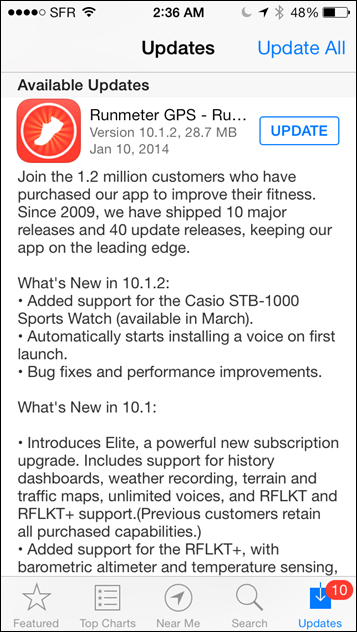
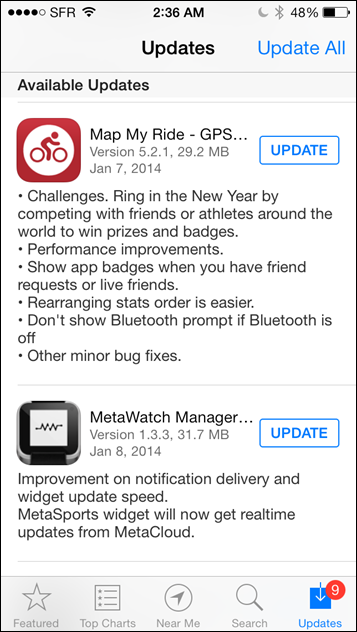
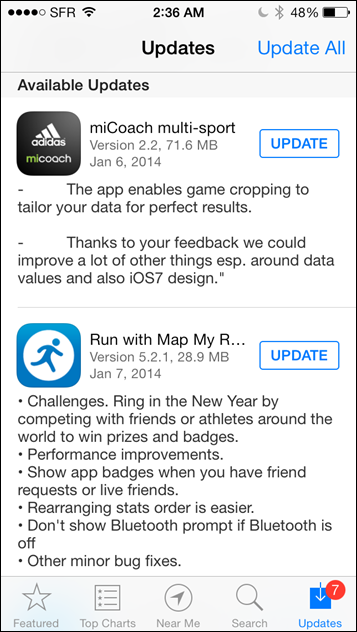
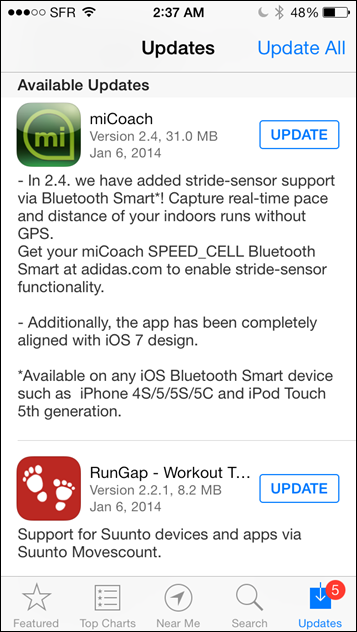
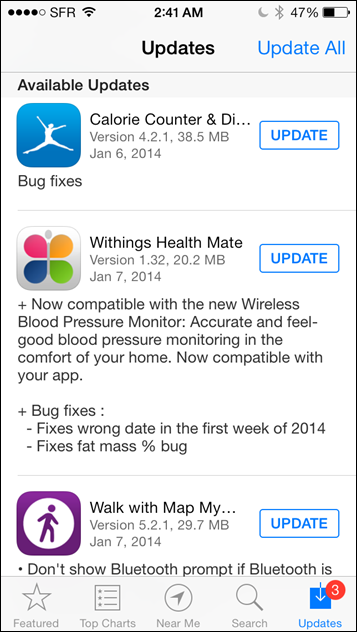
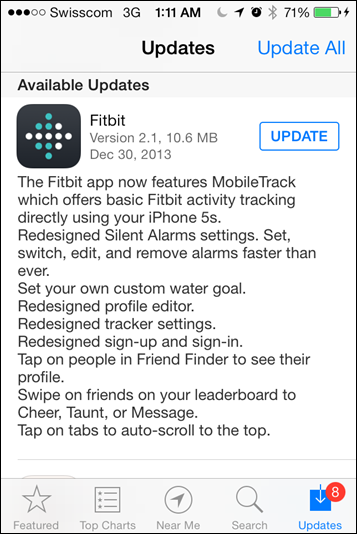
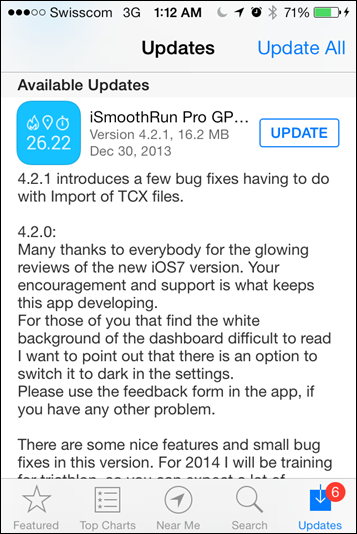
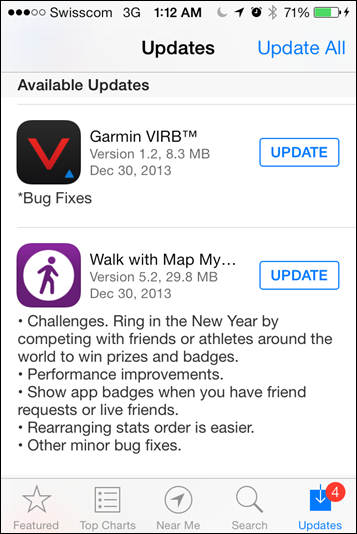
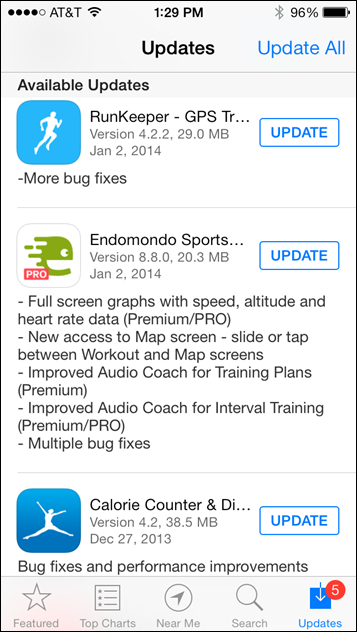
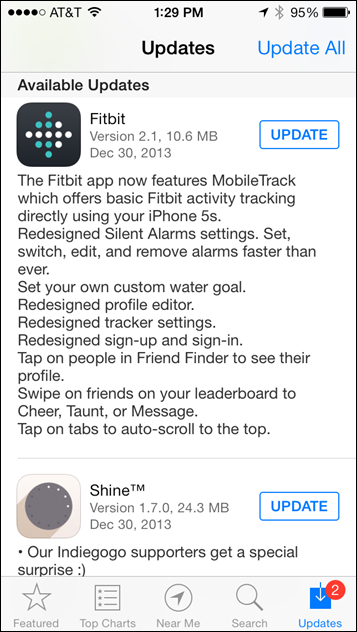
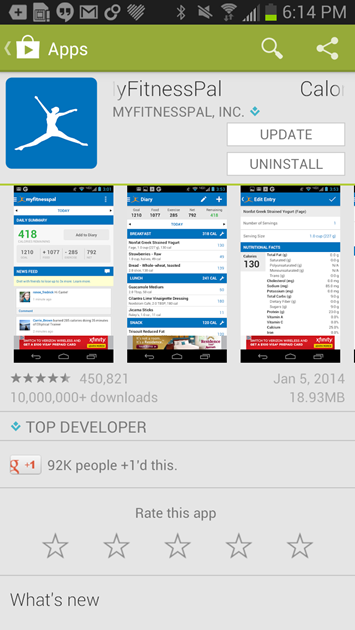
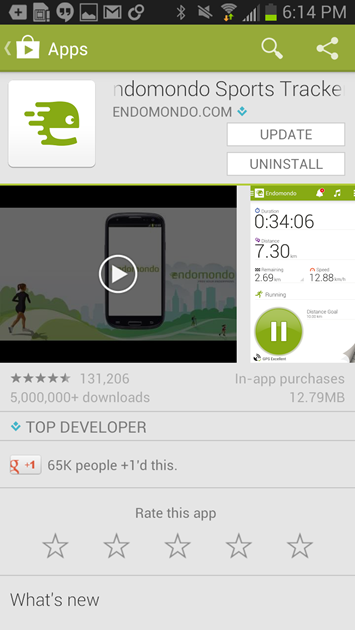
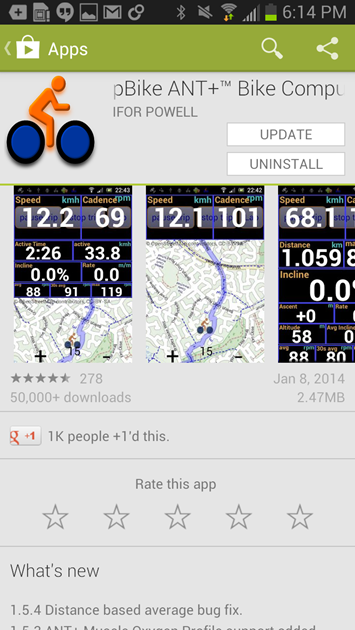
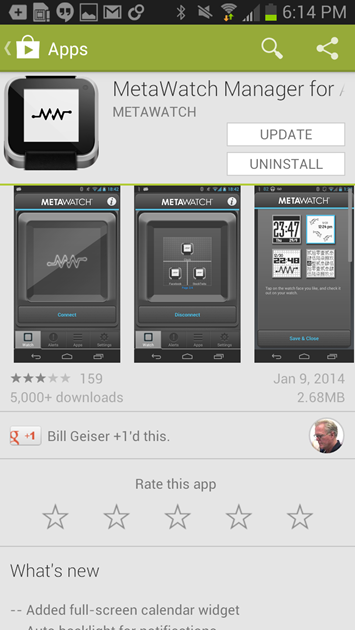
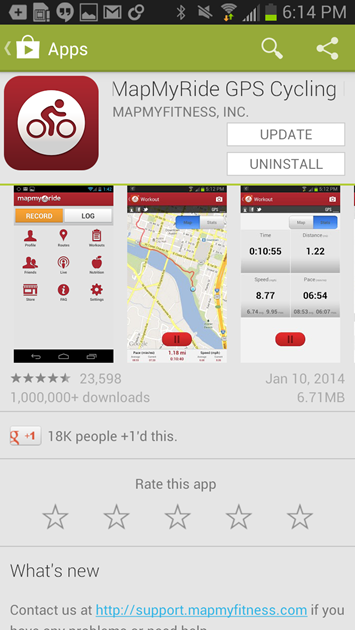
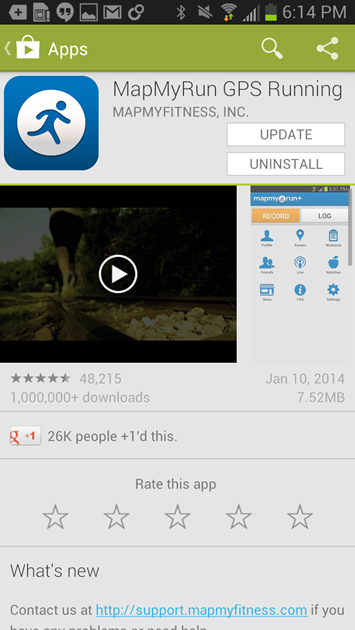
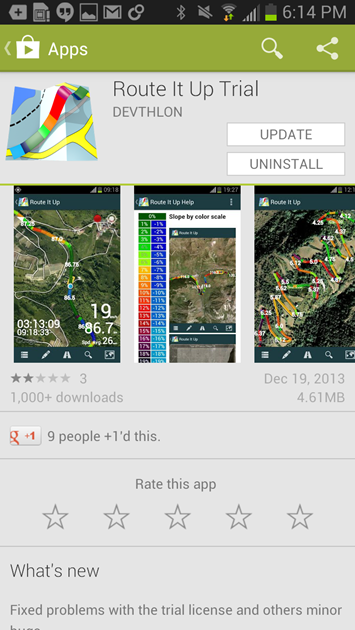
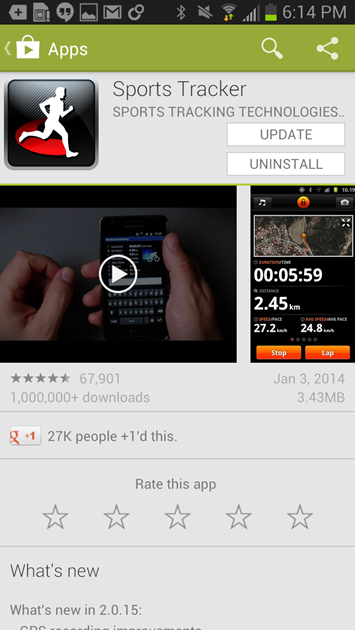
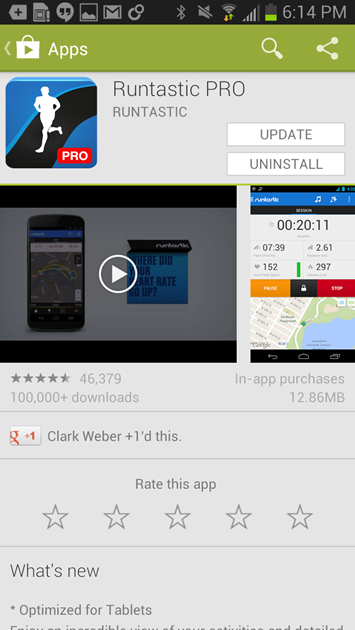
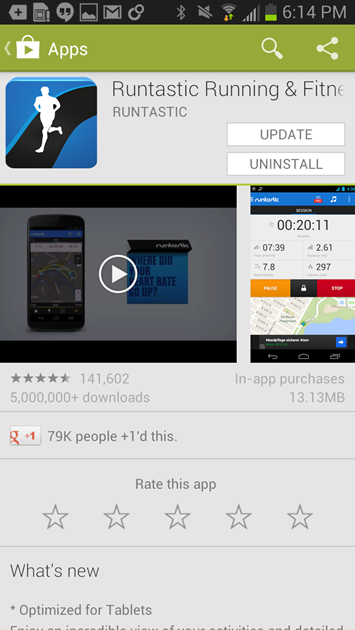
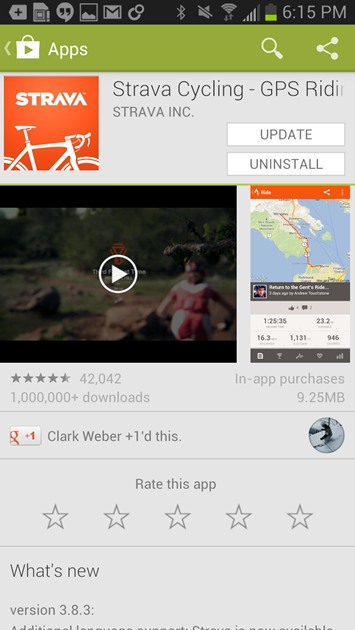
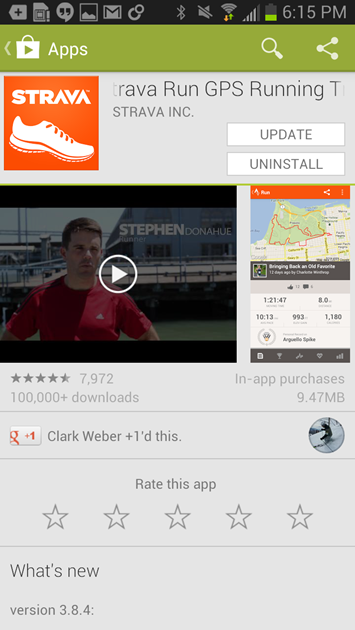
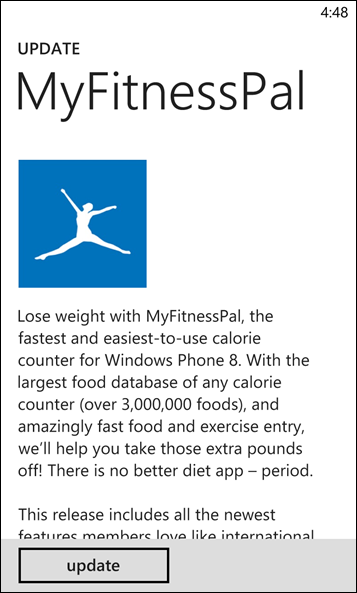
















I’ve never run a marathon and don’t feel motivated enough to spend all that time training, but that Disney one looks like such fun I’d be tempted if living in the vicinity. Do they do one in Eurodisney I wonder???
Right now, from what I have read, they are in the exploratory stages of doing a half marathon at Disneyland Paris as people have received surveys to gauge interest. The date would be sometime in the fall from what is being asked on the survey. If you have interest in the state side runs (there are 5 different ones in Florida and 2 in California) you can go to rundisney.com.
If Atlas is only worn on the wrist of one arm how does it evaluate your form? Also seems like if you have bad form it may think you’re doing some other exercise.
The Atlas sounds like a less capable version of the long overdue and perpetually “shipping soon(tm)” Amiigo.
I reallyreallyreally wish they’d discuss the sensor suite up front on these sorts of projects instead of being coy about it. It looks like maybe an optical pulse sensor (Mio’s again?), no mention of oximetry (a la Amiigo) or thermals, and a set of accelerometers?
Kinda meh for that price (US$160?), IMHO.
I dunno, I find it a tad depressing that almost two years since Motoactv went kersplat there’s nothing out there that’s nearly as versatile.
Well, nothing for a bodybuilding gym rat who only includes running in her routine grudgingly :P
I look at the Atlas/Amiigo comparison a bit differently. Unlike Amiigo, Atlas is clearly not a 24-hour device: it is for use at the gym and is optimized as such. Its advantage over Amiigo are that you don’t need a phone with you at the gym because you have a display on the device. Its disadvantage is that the screen makes it a bit clunky. I’ve seen nothing from either company explaining if you enter the weight you are working with which is fundamental for tracking workouts and there is the obvious question for both (as mentioned by Eli) that they are single wrist devices so how do you track your reps on the alternate side. I do question the price of both devices (I’m guessing around $195 retail for both).
I have to confess to having some bias against Amiigo as I was banned from their Facebook page because I dared to consistently point out their lateness and used their very own updates to demonstrate said lateness and their lack of follow-through. I figure that if a company is that sensitive to the tiny darts I was throwing it does not bode well for them in the general marketplace where they will have to endure the slings and arrows of reviewers like Ray. The way I see it is that if the device fails on even a single commitment made, users and reviewers will turn on them and the company is overly sensitive to that.
But the other view I hold is the more, the merrier. Even as some of these products fail, other companies will borrow those ideas that are good and, eventually, we will get a product like what we are hoping for.
The Amiigo actually has two sensor points, the wrist and a footpod. Not, mind, that I think that’s really sufficient for what they’re claiming it’ll do. Then again, I don’t really expect much at all from these sorts of crowdfunded projects. To date even the “successful” big name ones — Pebble, Ouya, et al — have delivered products I felt were underwhelming at best.
Assuming the Amiigo ever ships, I’ll frankly be stunned if the movement detection or, to me more importantly, the pulse-oximeter is anywhere near accurate in a real workout.
Personally I always have my phone with me when out running or at the gym, so I don’t really see that as an issue. I would prefer a self-contained unit, but meh. What I really want is something like my Motoactv (which, sadly, after two years is on its last legs), only better — built-in HRM, thermals, maybe GSR,along with BTS, Ant+, wifi, MP3, GPS, Wifi, and all the other goodies the Motoactv had. Instead what has mostly come out are “smart” watches that aren’t in fact “smart” in any way, shape, or form, and are instead dumb secondary phone displays, along with an endless march of very nearly feature-free step counters.
It’s kind of depressing, really.
Interesting Crossfit article. I for one succumbed to the late night ads and purchased the T25 workout.
I have been horrible at committing to getting my core strengthened during the winter and I must say after 2 weeks of T25 I’m pretty impressed at the results. I think I’ve been burned out on the same old rides and runs and this helps to train some other muscles.
So, no love for Atlas, then? Can anyone list other similar projects that have been already funded or are still running?
I’m new to this scene and would be curios to contribute to a project, just don’t want to pick the worst one possible.
Not no love, just too soon. My party line to Kickstarter companies that come to me these days is: Put up or..well…nothing.
In other words, I won’t do any full standalone posts anymore for any Kickstarter projects* unless they physically show me the hardware – either in person, or shipping to me. Mostly because I don’t have much trust in their ability to do so until i can get a real grasp on what they actually have. Too many of these projects just flutter out.
*The exception being completely crazy new things that are unlike anything before that just compel me to write about them. At present, a bunch of half-baked activity trackers and wanna-be sports watches, not so much.
My view is there are lots of projects that kind of just fail or don’t really do what they promised and the electronic ones tend to be a significant amount of money to put out for a product. All kickstart, indiegogo, and the rest are risky.
So a few things I consider (order not important):
1) is this a technology I want to improve? It is an investment thats sort of like investing into R&D, so if its a technology I want to do better I may want to help it along. Flex volt fits this. I have no use for it as in its present form it seems to be more aimed at developers who could write interesting apps with the data it provides. For example say you’re doing a workout like say Yoga and you want to make sure you exercise equally or maybe concentrating on certain muscles, seems like this type of technology could do that.
2) Is it a good value? Is the risk worth possibly saving a good amount of money on an item I’d have to buy full price. Some kickstarts are at a much lower amount of money then the final product.
3) Does the product make sense? How does it work, does it seem like it can do what they say it can do? (this is where Atlas fails for me as I don’t understand how monitoring just one wrist can give much feedback into proper form)
4) Does it interest me (Well duh :-p )
@DENIS-
I’m keeping an eye on the Angel device (link to angelsensor.com, link to indiegogo.com). It seems more oriented to the wellness market than some other devices which is fine with me (I have a tachycardia that I need to keep an eye on and it is supposed to be able to provide “raw” EKG-type data which I could share with my cardiologist as well as oximeter, skin temp, HRV and motion/activity and caloric burn data. It will likely fall short for people looking for a fitness tracker like Amiigo and Atlas.
It lacks a display but will deliver range-based alerts (e.g,, heart rate exceeds X, spO2 below Y, steps taken less than Z) and they plan on providing IFTTT scenarios down the road. The device will have LEDs that are configurable (probably part of the range-based alerts) that could be programmed to pulse with heart rate for example. That basically works for me. It tracks sleep (although I have a Beddit on the way) and supposedly will not require enabling a “sleep mode” to do so.
They claim that the device will accurately measure heart rate while exercising and it will have both optical and acoustic (think of gurgling sounds from a leaky valve or regurgitation in the heart) sensors for heart rate extraction.
The device will sync automatically and manually to other BTLE devices based on user choice.
The IGG campaign is over and they are targeting an April delivery which means it should be available by fall.
The biggest risk is that they are relying on third parties to deliver the best apps. They will provide what they call “foundation apps” but the are really looking to third parties to come up with interesting and innovative apps. This is not just a risk but a great opportunity for users and developers alike. They claim to have significant interest from developers and I have no reason to doubt them as they have been very forthcoming. I think their last update on IGG has some of the ideas developer have suggested.
A couple of things I really like about it:
1) This is not just a business opportunity for them; one of the founders lost his dad to a heart attack at a young age so they seem very driven.
2) They are very open to questions – I haven’t had one question unanswered.
3) They are delivering an open SDK to developers.
That’s what I know about the device and that’s the one I’m keeping an eye on but I am no gymrat.
@Eli-
I use pretty much the same criteria for deciding what projects to back with one additional consideration: how far along are they. If an electronic product has not done multiple iterations of prototyping, I am not interested. The probability of failure is pretty high. Even projects that meet this requirement face obstacles once they get to manufacturing (see Amiigo) which is because the people running these projects have backgrounds in electronics and software and have never dealt with the complexities and logistics of manufacturing (it’s interesting that Atlas actually did address this issue so well).
And cost/risk is a big consideration. For instance, as much as the Angel tracker caught my interest, I could not justify jumping in at $135 for a $24 discount; I’d rather have the certainty of a released product that has some reviews. If I had gotten in in the first 200 at $99, I would have bit.
Also some things to keep in mind that apply almost universally:
– Will the product be late? Yes. (including when they say they will be late and give another date in the future, most likely that date will be missed too)
– Will they be as responsive to comments as you want them to be? No. Most likely there are not that many people to be able to be very responsive. They also have to worry about competition and giving away too much information before the product ships. Plus the product is in development so things can change so no point in limiting yourself to something you said for no reason
But try not to attack the team for those problems and like calling them unprofessional or demanding a refund as that just leads down a bad path for no reason. Remember you are not giving them money to become part owner of the company.
yeah, I think 1 year (or even more?), is too long to wait. Might as well buy at full price when it comes out and gets some reviews.
Did you manage to see anything of WearIT at CES? I understand they were there but haven’t updated their website is a bit?!
No, unfortunately I didn’t stumble upon their booth.
You’ve said that your going to do an initial look at the new look Garmin Connect shortly…. are you allowed to say if it has any form of equipment tracking i.e. you input the bike you rode or the shoes you ran in so you can track how much each item is used.
Thanks
The Disney Marathon is a blast! That was my first marathon ever and it lived up to the hype! You can run it any way that you like it whether for time (which is what I did for the most part), getting to go through all the parks for free (some people stopped to ride the rides while running it), or get your picture taken with all sorts of Disney characters along the route (not good for time but great for memories)! I only stopped at one character as there was no line for him (Stitch) but people will line up to get their pictures taken 20 to 30 deep at the more popular ones!
The course is pretty flat for the most part except all the entrance and exit ramps that can get rough if you don’t train for hills (I didn’t and paid dearly).
Like you mention in the article, you can do the Goofy which is the half marathon on Saturday followed by the full marathon on Sunday and you get a special medal for it. This year, they also added the Dopey which is the 5K Thursday, 10K Friday, Half on Saturday and Full on Sunday!
And Ray, you don’t need kids to run it!
Don’t wear a wetsuit (don’t do tris) so don’t know if this would be useful or not: link to kickstarter.com
Interesting. I wouldn’t see myself buying one (just wouldn’t use it enough), and, once you know some of the tricks, you can remove a wetsuit pretty darn quick.
Ray,
Did you see the announcement by Shimano of the ANT3+ wireless connection to the DI electronic group. This sounds like it would make possible automatic gear changes based on parameters such as power and cadence. (Automatic transmission) Have you seen it yet?
Yup – depending on which article you read (such as Velonews), it likely references a post of mine from back a while ago: link to dcrainmaker.com
Close. It’s actually not ANT+ today however, but rather, private ANT. There’s definitely a ton of potential, but until they do something with it, it’s all not quite as useful as it could/should be.
As for the garmin 620 “spring” updates (cycling mode and configurable lap banners), are those software changes or actual hardware changes (new version of 620 watch)?
Just software updates, no new hardware or anything. One day it’ll magically show up in the updater and your unit will prompt you to update.